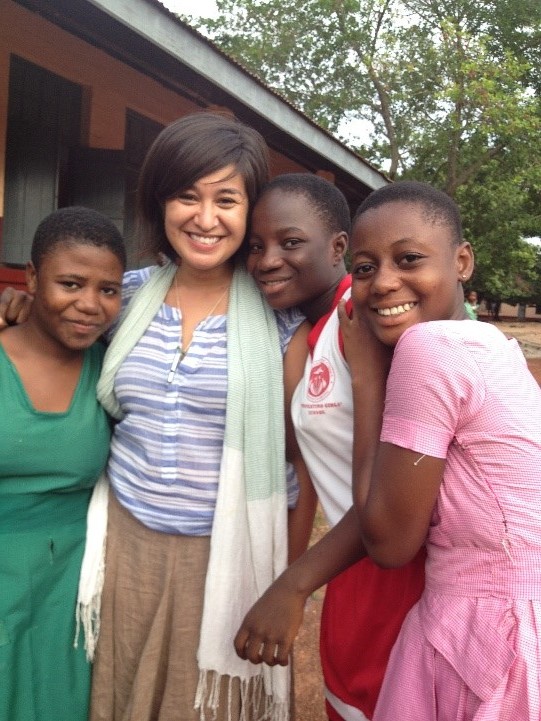First in a series by Isabel Hovey (LBJ MGPS Student) covering her internship at Exponential Education.
LBJ alum Helen Gradstein founded Exponential Education (Expo) as a community-based solution to educational gaps facing students in developing countries. Alongside her undergraduate professor, Dr. Kate, the two of them started Expo with 4 senior high school students and 15 junior high school students. Five years later, Expo has implemented over 45 different projects in 3 different countries and reached over 1600 students.
Expo subscribes to the idea that effective supplemental educational programs increase student access to education and improve learning levels. Enrolled students are able remain in school and improve competency levels through earning cash transfers and improving their math and English skills. The model of the program is relatively simple: train high school students to tutor struggling junior high school students in math and English basics over the course of a school term. High school students receive a stipend to help cover school fees and at the end of the term, one of them is awarded a substantial merit-based academic scholarship to be applied to next year’s school fees. Junior high school students receive attention in small groups, are exposed to activity-based learning alternatives, and assistance in relearning remedial material that will hopefully help them pass the national junior high exit exam – a requirement for graduation. Overall the concept is fairly effective – empower students financially and academically.
Expo’s strength lies with their work in Ghana implementing the previously mentioned Peer 2 Peer Tutoring Program and now more recently, the Girls Leadership Program. The organization takes great care to keep overhead costs low and their program quality high. Expo’s accomplishments and impacts are notable. Their employees are devoted to the work. But below the surface of the annual reports and blog posts lie the unglamorous minutia of keeping a small international NGO afloat. The challenges lie in the details of providing relevant services to the community, increasing consistent funding streams, expanding staff support in the field, and improving communication both in the field and stateside.
This summer, Helen and Expo have invited me to come to Ghana to address those challenges by conducting a performance evaluation and knowledge management (PEKM) assessment. In other words, my job is to come to Ghana as an external consultant to evaluate performance in terms of participant and staff satisfaction. I am then tasked with compiling all findings and using that data to inform Expo on recommendations for future organizational improvements. An evaluation of this size and scope is ambitious under any circumstances, especially given the short time frame as a team of one with no budget. Therefore, as a responsible PEKM consultant, I researched the community and designed a preliminary evaluation before arrival.
Now I have studied the material on how to adequately prepare for a rapid assessment; I know the importance of conducting a literature review, developing my theory of change, and defining my indicators. But my awareness of the subtle limitations I will face are also a concern of mine. This includes the obvious components of realizing my ability to conduct research as one person, but the more nuanced limitations are fundamentally cultural concerns as well.
While my international development experience is fairly extensive, I have never been to Ghana, or anywhere in West Africa. I know that need to be aware of both how to try to communicate effectively and how I might be perceived as a foreigner. The largest barriers I anticipate encountering in collecting quality data in Ghana will be the spoken languages. Descriptions of Ghana write that English is the national language, but I am aware from reading the fine print that there are regional languages spoken at home. I am aware that even if I make a valiant attempt to learn basic polite conversation, I will not be able to effectively and respectfully ask questions that mattered if I could not speak Twi, the language of the Ashanti. And unfortunately, language and superficial cultural differences are just the beginning to collecting good data.
So there is the hard truth of it all: Expo needs a comprehensive evaluation of their organization at a critical time. And as a small organization with limited resources, I am what they can afford – an intern with a resume that includes Peace Corps, educational support programs, and only one year of graduate school. It is not ideal, but I respect their desire to move beyond the actions of many other international NGO’s. Expo management has asked themselves how they can improve the services they are providing to Ghanaians and how they can improve their support of staff in the field.
One month into the internship, I am finally getting creative about how to meet Expo’s needs and how to address some of those cultural barriers to collecting good data – embrace the challenge and, above all, ask Ghanaians for help.

